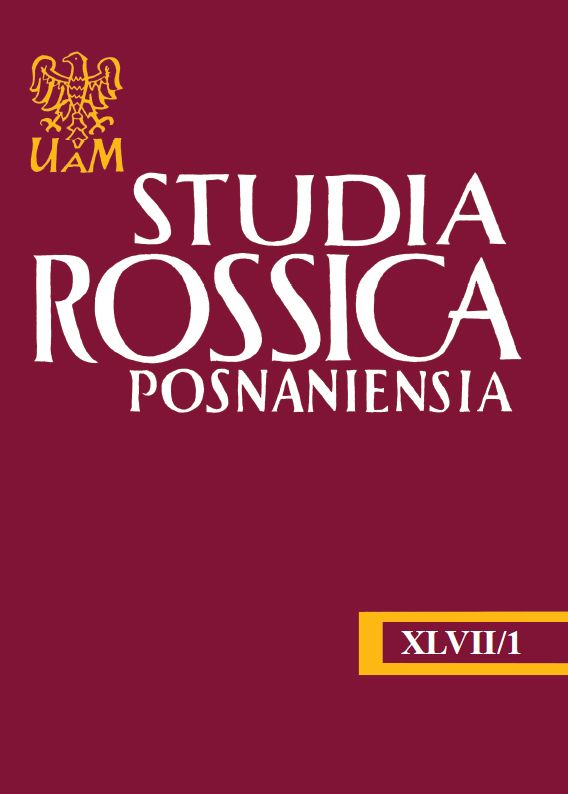Vladimir Tuchkov’s intertextual transgression: Folklore, parody, and social criticism1
Vladimir Tuchkov’s intertextual transgression: Folklore, parody, and social criticism1
Author(s): Nicolas DreyerSubject(s): Studies of Literature, Philology, Theory of Literature
Published by: Uniwersytet Adama Mickiewicza
Keywords: Vladimir Tuchkov; satire; intertextuality; fable; fairy-tales
Summary/Abstract: This essay aims at analysing and illustrating a segment of the post-Soviet short fiction of the contemporary Russian writer Vladimir Tuchkov. It specifically discusses his collection of very short stories And he earned many dollars…: New Russian fairy-tales. These short stories exemplify many characteristics of Tuchkov’s oeuvre more generally. The discussion analyses the satirical contents of these miniature fictions, which the author places in the tradition of the Russian classics and of Russian folklore, within the theoretical context of parody, pastiche, intertextuality, and folklore. Tuchkov’s short narratives create a de-familiarised, quasi-mythological space where pre-modern, Soviet, and post-Soviet times converge. This results in the critical, satirical foregrounding of certain continuities in Russian culture, society, and mentality throughout the centuries despite the enormous political and social change, which it has experienced, as much as constituting, like Russia’s traditional fables, a critical and satirical engagement with contemporary social reality in Russia. The contribution examines the specific intertextuality with a satirical folkloristic genre as a literary expression, which reverberates with a post-Soviet readership, given its inherent concern with social structures. It is suggested that the employment of these concepts and literary forms in this combination serves to reinforce their overall effect of creating a hyperbolised, satirical representation of social reality.
Journal: Studia Rossica Posnaniensia
- Issue Year: 47/2022
- Issue No: 1
- Page Range: 21-41
- Page Count: 21
- Language: English

